Now that you know how to feed your sourdough starter, you might find yourself with a good bit of sourdough discard, especially if you're making a new sourdough starter! The good news is, you can put this discard to good use! In this post, we'll walk through why and how to use your sourdough discard (instead of throwing it away), which can add a wonderful flavor and additional lift to your recipes.
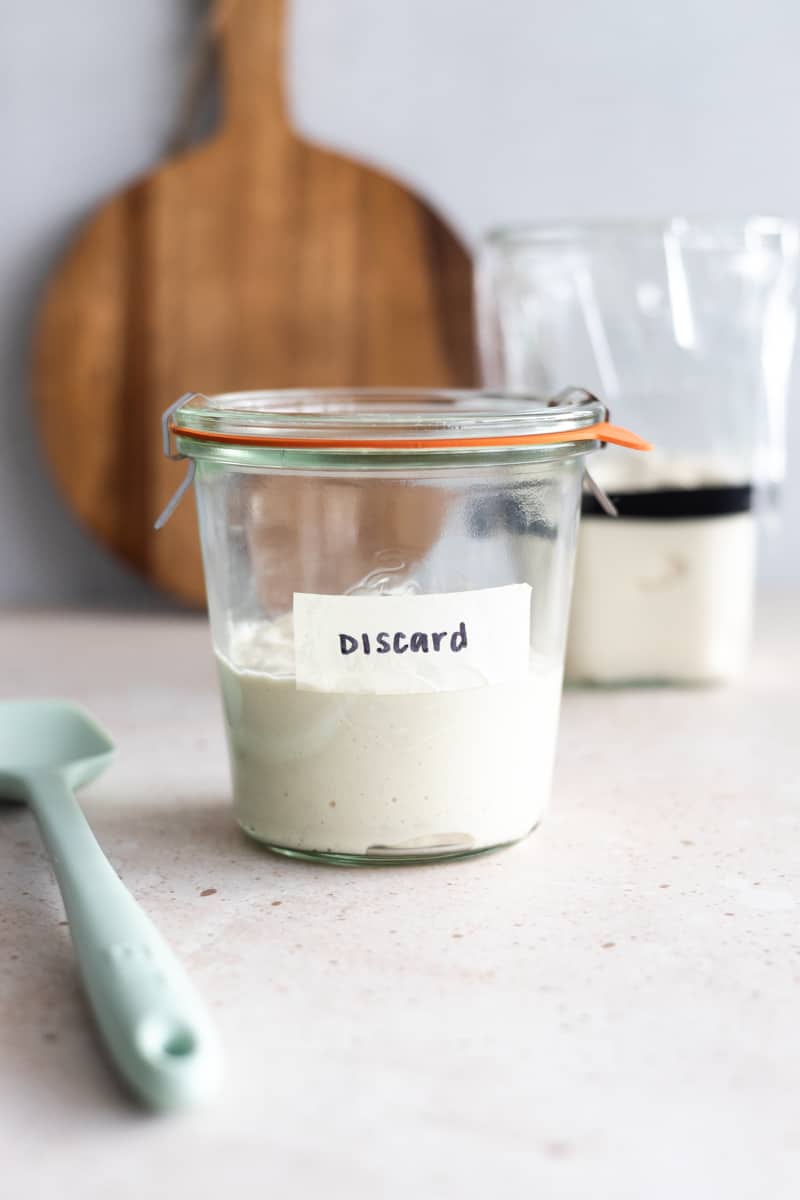
Before you go further in this post, you will need to have a sourdough starter. If you do not have one, you have a few options: you can make your own with this sourdough starter recipe, you can buy a sourdough starter, or you can get one from a friend or neighbor who is willing to give you some of their discard to make a new starter. Check out these posts for in-depth guides on how to feed sourdough starter and tips for struggling sourdough starter.
Jump to:
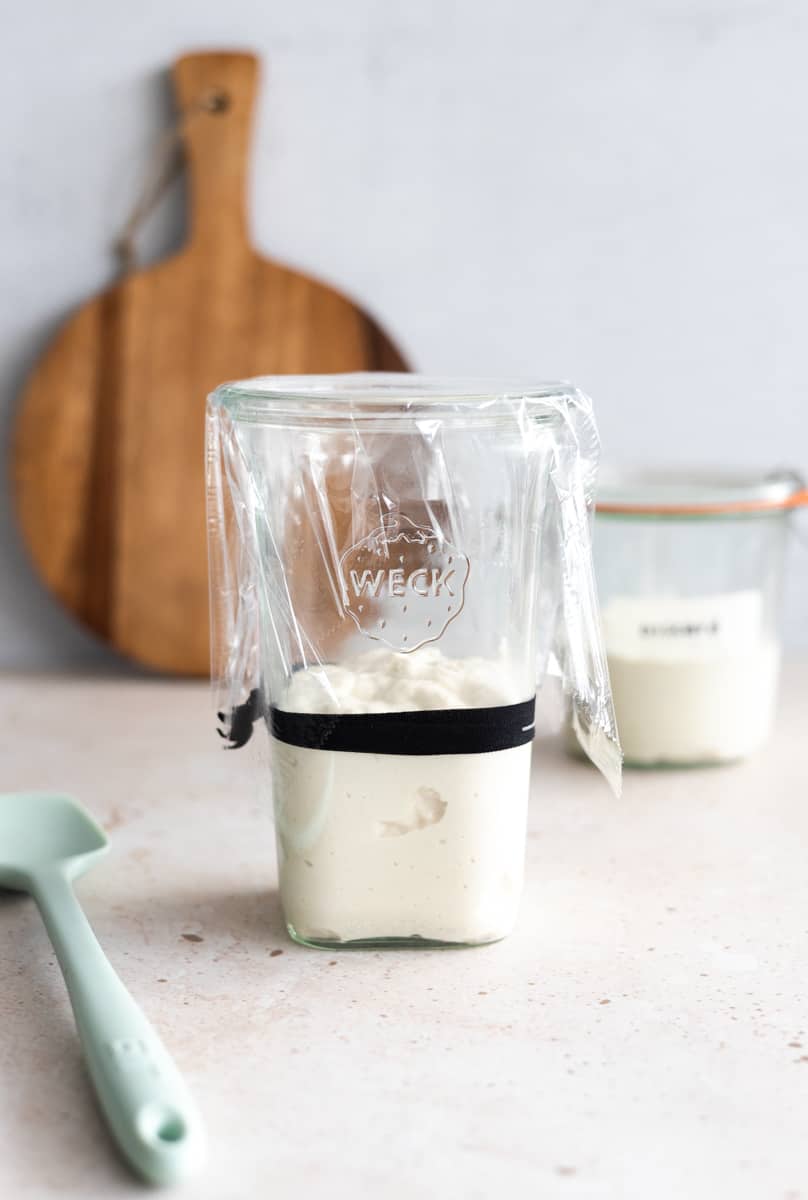
What is sourdough discard?
Sourdough discard is what you have leftover after you feed your sourdough starter.
When you feed your sourdough starter, you measure out a portion of the starter, then add fresh flour and water. The portion of the starter that you didn't use or feed is the discard. You can either literally discard this (in the compost or trash), or use it for sourdough discard recipes. It has fermented, so it has some natural yeast and will be an added lift and a bit of sourdough flavor for your baking recipes.
Why do you have to discard?
Your sourdough starter grows quickly and can double in size in a single day (especially when it's very active). If you do not discard, the starter will become very large very quickly and you'll need to feed it with 2x the ingredients with every feeding. That will get out of control very quickly!
Discarding keeps your starter at a manageable size. This also allows you to feed your starter with the same amount of ingredients (flour and water) for each feeding.
Note: If you are baking with active sourdough starter, you likely won't need to discard! Discarding is for when you feed your starter without baking with it at the same time.
What can you do with sourdough discard?
Once you have sourdough discard, there are a few things you can do with it:
- Discard it: As the name suggests, you can literally discard it. DO NOT put this down your sink drain as it will harden into something close to cement and will clog your pipes. Either compost or throw the discard in the trash.
- Use it immediately for baking: If you are going to bake something right away (same day), you can keep the discard at room temperature until you're ready to bake. Cover it with plastic wrap to keep it from drying out until you're ready to use it. Check out a few of my favorite sourdough discard recipes here.
- Store it for future baking: You can store sourdough discard in an airtight container in the refrigerator for future baking with sourdough discard recipes. When you're ready to use it, let the discard come to room temperature before using it to bake.
- I will keep sourdough discard in the fridge for about one week. I do know others that keep it much longer. The longer you keep it, the higher the risk of the discard growing mold or bad bacteria.
- Make another starter: If you want to have a second starter, you can feed the discard as well, and make another starter!
- Give it to someone to make their own starter: If you want to give someone some of your sourdough starter, you can give them discard! Feed your sourdough starter as normal, then give away the discard to a lucky friend or neighbor. Make sure to leave them with instructions on how to feed it.
How to store sourdough discard
If you are going to use the discard immediately (within the same day), you can keep the discard at room temperature. This can either be in an airtight container, or in a bowl covered with plastic wrap. It will then be ready to go when you start your recipe.
If you are going to use the sourdough discard for future baking (within one week), store the discard in an airtight container in the refrigerator. This could be in a sealed jar (I love these Weck jars) or container. Feed your starter as often as you like and accumulate the discard in this container until you're ready to bake. When you are ready to bake, remove the discard from the fridge and let it come to room temperature.
I recommend keeping sourdough discard for up to one week. If needed, mark the date on the container in your refrigerator. After one week, there is a higher chance of the discard growing bad bacteria or mold.

Why should you bake with sourdough discard?
Baking with sourdough discard helps to eliminate some of the waste of a sourdough starter (if you have one, you know how much flour you can go through!). You've put a lot of time and ingredients into making that sourdough starter, and it's a shame to throw so much of that away! The good news is that you don't have to. Baking with sourdough discard also adds a great slightly sour flavor and additional lift to your baked goods.
When you are baking with sourdough discard, it should always be at room temperature (to help the dough rise), and unfed (i.e. this is the discard, not the fed part of your starter).
Every sourdough starter (and therefore, the discard), is different. If you're baking and you feel like your dough is too wet / too dry, add more water or flour (in 1 Tablespoon increments) to reach your desired dough consistency.
Sourdough discard recipes
Below are a few of my favorite sourdough discard recipes. These are a great way to use up some of the sourdough discard that you have, while making a delicious baked good!
We're adding more all the time, but leave a comment below if there is something you'd like to see that we don't have a recipe for yet!
See more sourdough discard recipes →
How do you know if your sourdough discard has gone bad?
I recommend keeping sourdough discard for about one week, but I do know others who keep it for much longer. After one week, there is a higher risk of mold or bad bacteria growing on the discard.
Signs of mold could look like:
- Traditional green / black mold: This is the traditional green, black, or grey fuzzy mold that we all know. If you see this, time to throw it away.
- Pink or orange streaks: This is another way that mold can present itself in the discard. Watch out for pink or orange spots or streaks in the discard. If you see this, time to throw it away.
A good rule of thumb: If you feel like your discard is "off" in any way (color, smell, anything), discard it. It's not worth messing with mold. You will always have more sourdough discard!
Sourdough Discard FAQ
You may see a murky liquid form on the top of your sourdough discard, especially if it has been sitting a while. This is the hooch (completely normal and harmless) and means that your discard is hungry (completely normal, because you're not feeding it!). Before using your discard, pour off this liquid. You can also mix it back into the discard, if you prefer.
I recommend keeping sourdough discard for up to one week. After that point, there is a higher risk of bad bacteria or mold growing.
I recommend feeding your starter at least once per week. Check out this post for an in-depth guide on how to feed sourdough starter.
No. Active sourdough starter has an active yeast culture, whereas sourdough discard is inactive. If you're baking with sourdough discard, you will need to use a leavening agent (likely, yeast) to ensure the dough rises predictably.
Using sourdough discard in a recipe will give it a slightly sour tang (like sourdough bread), and give it some additional lift from the natural yeast.
Check out this in-depth post with tips for struggling sourdough starter.

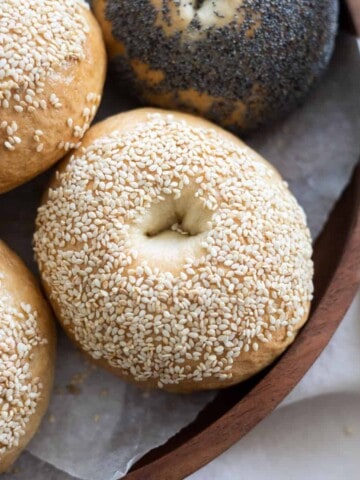
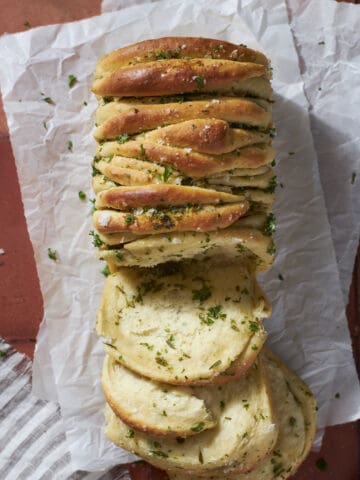


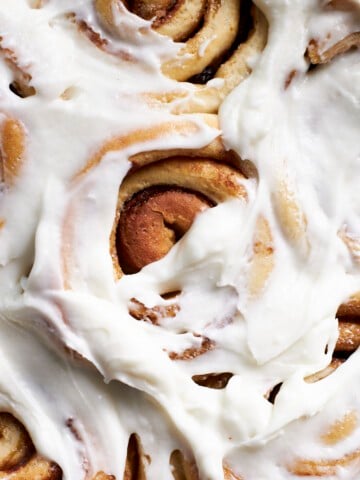
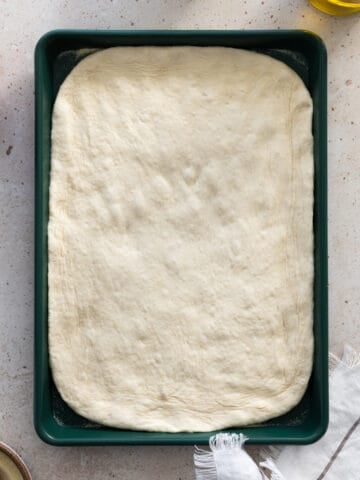
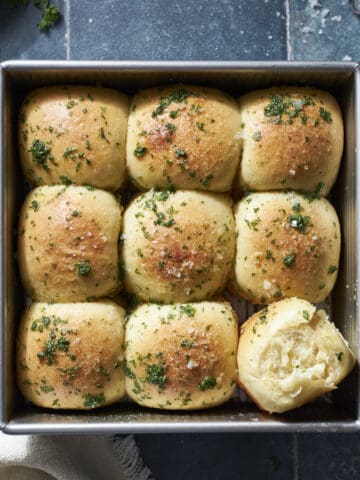
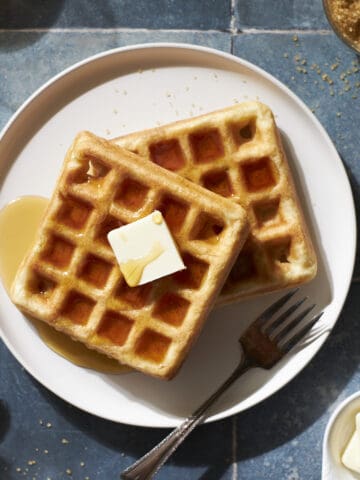
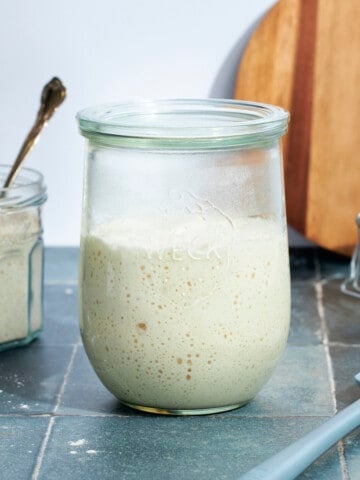

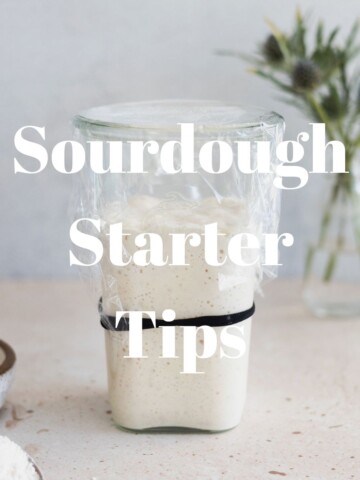

Nicole says
What happens if you never discard and just continue to feed whatever is in your starter jar/use only fresh starter?
Jessica Vogl says
If you never discard, keep feeding and you don’t use any of the starter, you’ll end up with a massive starter. If you do use fresh starter for baking and continue to feed what remains, that’s fine!